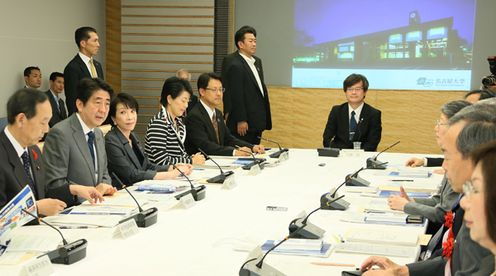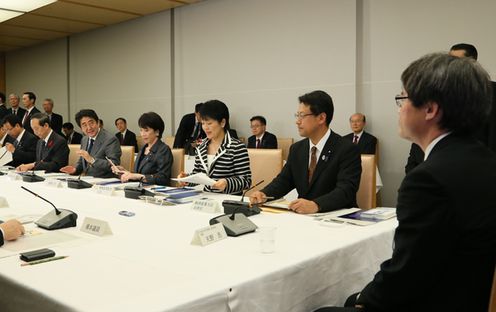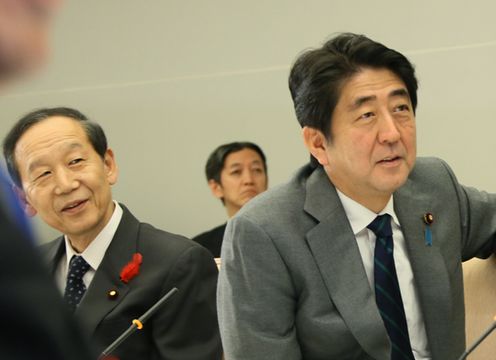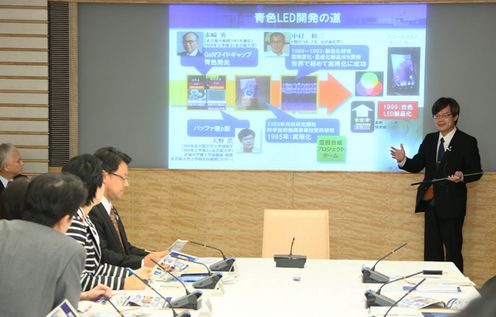Home > News > The Prime Minister in Action > October 2014 > Council for Science, Technology and Innovation
Council for Science, Technology and Innovation
Wednesday, October 22, 2014

Photograph of the Prime Minister delivering an address (1)

Photograph of the Prime Minister delivering an address (2)

Photograph of the Prime Minister listening to the presentation from Prof. Amano (1)

Photograph of the Prime Minister listening to the presentation from Prof. Amano (2)
Prime Minister Shinzo Abe held the fifth meeting of the Council for Science, Technology and Innovation at the Prime Minister’s Office.
During the meeting, discussion was held on additional allocations for the Strategic Innovation Promotion Program (SIP), policy on the establishment of human embryonic stem (ES) cells along with policy on the distribution and use of human ES cells, and the Science and Technology Basic Plan.
Following this, Professor Hiroshi Amano of Nagoya University, recipient of the 2014 Nobel Prize for Physics, gave a presentation entitled, “Issues surrounding science and technology: Making use of the opportunity of the Nobel Prize for Physics”
Based on the discussion in the meeting, the Prime Minister said,
“Today we have been joined by Prof. Amano, and have heard extremely valuable comments. I would like to express my gratitude for this.
Prof. Amano boldly challenged the notion that the development of blue light-emitting diodes (LEDs) was impossible. He experienced 3,000 failures in his experiments, but he never gave up, continuing on resolutely with his research. I am deeply moved by the strength of that simple and outstanding conviction. In the Abe Cabinet as well, I want us to support those overflowing with a spirit of taking on great challenges.
We must make the Fifth Science and Technology Basic Plan a plan that can respond to an era of innovation in which it is becoming more difficult to make definite speculation about the future. To that end, we must not become caught up with existing organizations, value systems, or the hierarchy of universities, and think instead about young people overflowing with a spirit of taking on great challenges like Prof. Amano. Of course he is still young, but when he undertook the research that won the Nobel Prize, he was 25 years old. I believe it is important that we create an environment in which people can produce research results when they are young. The provision of an environment in which they can freely and boldly pursue research is indispensable to this.
I want to think about what did not go well with previous plans, face the true causes of that head on, eliminate those causes, and foster and mobilize human resources. And I want measures to include consideration for even the future of organizations and distribution of funding. Thank you very much.”



